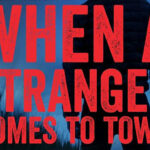Home »

Guide Dog and Service Dog Act strengthened
Stronger rules supporting better access to public spaces and strata properties for people with guide and service dogs come into effect Jan. 18.
A certified guide or service dog handler has the same rights as a person who does not use a dog for assistance and these changes make it clear that discrimination is unacceptable. Specifically, they streamline the rules already in place, increase penalties for denying a certified guide or service dog user their rights, and protect the public at large, the Ministry of Justice stated in a news release late last week.
Notable improvements include:
– Higher fines and violation tickets for denying access or tenancy to a certified guide or service dog user.
– A new high training standard for certified dogs, to assure the public and businesses that they are well-behaved.
– Standardized identification cards for certified teams, to provide clarity.
Under these new rules, restaurants, transit or other businesses that deny a certified guide or service dog user their rights are subject to fines, if convicted. The fine has been increased from $200 previously to a new maximum of $3,000. This makes B.C.’s penalties among the highest in the country and in line with Alberta. Ministry of Justice inspectors will be authorized to issue violation tickets ranging from $50 to $250, as part of progressive enforcement that will begin with information and education.
“Many of us cannot imagine some of the extra challenges that people living with a disability face on a daily basis. Beyond providing a crucial service and a true lifeline, these dogs become members of people’s families,” stated Minister of Justice Suzanne Anton.
“These changes mean guide dogs and service dogs will be certified to the highest standard. This will help protect dog users and the public, and it will provide clarity and certainty for other businesses on what their responsibilities are when it comes to allowing these dogs on their premises,” she added.
Moving forward, residents will not be denied a place to live based on having a certified guide or service dog. Strata boards and landlords with a no-pets policy may not refuse residency to someone for having a certified guide or service dog.
“Guide dogs and service dogs are critical to the success of many disabled British Columbians, and fundamental in their everyday lives,” said Minister of Social Development and Social Innovation Michelle Stilwell. “These changes mean people who rely on a guide or service dog are free to enjoy the same things as every citizen. Eating out at restaurants, visiting our museums and enjoying our public spaces should not be considered privileges only for those who don’t live with a disability -they are the freedoms of all British Columbians. The new rules make it clear that discrimination will not be tolerated. It’s a big step toward protecting the rights of disabled individuals, and shows our government’s commitment to becoming one of the most progressive provinces in Canada for those who live with a disability.”
The new rules also protect the public at large. New identification will make it easier for service providers and businesses to know they are serving someone with a certified guide or service dog. As well, newly certified dogs will meet a high training standard to assure the public that they are well-behaved and able to tune out distractions like food, noise or other animals. For dogs not certified through an accredited guide or service dog organization, handlers can now have them tested to ensure it meets the new standard.
“A regulated certification program of the highest standards and an identification card for guide and service dogs will provide a comfort level for users and the public. This will go a long way to eliminate any questions of legitimacy,” said Bill Thornton, CEO, B.C and Alberta Guide Dog Services and Autism Support Dogs.
Jane Dyson, executive director, Disability Alliance BC noted: “Today’s announcement is an excellent example of how positive change can take place when community partners, disability groups, and government work together, and that is reflected in the Guide Dog and Service Dog Act.”
Rob Sleath, access for sight-impaired consumers representative, CNIB, added,”As an advocate for people with sight loss and a guide dog user, I can attest to the importance of these changes adopted by the province first hand. This will ensure a person with a disability is treated fairly and is privy to the same access as all other members of the public.”
Guide and service dogs are crucial for many British Columbians who live with a disability. For example, they may help individuals who are visually impaired navigate city streets or provide assistance with things such as hearing loss, epilepsy, diabetes or post-traumatic stress disorder.
Retired dogs are included in the changes to tenancy rules. Once a dog is no longer certified as a working animal, due to age, injury or disease, it will now be able to remain in the home with its handler.
Handlers seeking to have their guide dogs and service dogs certified will now be able to have them tested by a neutral third party – the Justice Institute of British Columbia – if they were not trained by an accredited school.
Lead image from BC Government.
e-KNOW







